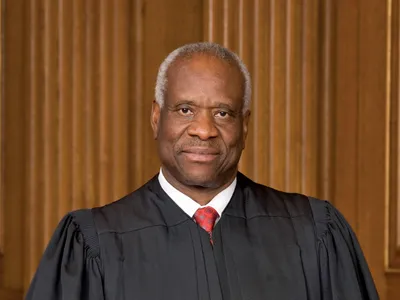The Senate Judiciary Committee has uncovered significant ethics violations by Justice Clarence Thomas. On Thursday, the committee announced findings from a subpoenaed investigation. It revealed that Justice Thomas failed to disclose multiple private jet trips. Which were provided by GOP mega donor Harlan Crow, exacerbating scrutiny over his ethical conduct.
Senate Judiciary Unveils Undisclosed Luxuries
The committee’s investigation was propelled by a subpoena issued to Harlan Crow, a known conservative benefactor. The documents revealed that between 2017 and 2021, Justice Thomas did not disclose three domestic private jet trips. Which were financed by Crow. Moreover, the inquiry uncovered additional instances of private jet travel. Additionally an eight-day yacht excursion in 2019. All of this which, Thomas has also failed to include in his financial disclosure amendments last week.
These revelations add to the controversy surrounding Thomas’s financial disclosures. Last week, he amended his records to list two additional trips under the “reimbursement” section. These trips included flights to Bali and visits to Crow’s private club in California. Certainly, with all expenses for food and lodging covered by the donor. According to legal requirements, Supreme Court justices must disclose gifts of transportation. Although they are not obligated to report food, lodging, or entertainment received as personal hospitality.
Calls for Accountability and Reform
The reaction from Capitol Hill has been swift and pointed. U.S. Senate Majority Whip Dick Durbin, D-IL, criticised the ongoing ethical lapses and called for stronger oversight. Chief Justice Roberts continues to refuse to use his current authority to impose an enforceable code of behaviour.
He emphasised the need for legislative action. And vowing to continue the push for the Supreme Court Ethics, Recusal, and Transparency Act.The proposed legislation aims to establish a binding code of conduct for Supreme Court justices. This code will enforce transparency, and ensure impartiality in the nation’s highest court. The urgency for such reforms is underscored by recent events. The growing list of undisclosed gifts and luxury trips involving members of the Court.
Historical Context of Ethical Scrutiny
This is not the first time Justice Thomas has faced allegations of ethical misconduct. Last year, a ProPublica investigation revealed that he accepted numerous luxury flights and yacht trips from Harlan Crow. Without reporting them in his financial disclosures. Furthermore, it was revealed that Crow had covered Mark Martin, Thomas’s grandnephew,’s tuition. Not even this expense was disclosed as necessary.
Justice Thomas is not alone in facing ethical questions. Justice Samuel Alito has also come under scrutiny. Especially for flying contentious flags at his house. After the 2020 election, an upside-down American flag—a sign of unease or protest—was flown at Alito’s home. He also held up a “Appeal To Heaven” flag, which rioters had previously flown during the Capitol uprising on January 6. The Court now perceives ethical failings more widely as a result of these acts.
Legislative Efforts and Political Challenges
The mounting controversies and apparent disregard for ethical norms have fueled a renewed legislative push. Senate Democrats are advocating for the Supreme Court Ethics, Recusal, and Transparency Act to address these issues systematically. The bill aims to codify a comprehensive ethical framework for Supreme Court justices, enhancing accountability and public trust.
However, political hurdles remain. Sen. Lindsey Graham, R-S.C., thwarted a recent attempt to pass the bill by unanimous consent, demonstrating the divisive nature of the subject. Despite the resistance, proponents of the bill argue that it is essential for maintaining the credibility of the judiciary and upholding democratic principles.
Conclusion
The latest findings by the Senate Judiciary Committee underscore a critical need for reform in the ethical oversight of Supreme Court justices. Justice Clarence Thomas’s failure to disclose luxury trips and other benefits from Harlan Crow highlights a significant gap in accountability. As public confidence in the Court continues to wane, the call for an enforceable code of conduct grows louder. Whether through legislative action or internal reform, addressing these ethical breaches is vital for preserving the integrity of the United States’ judicial system.





